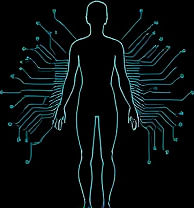Balancing Neurotransmitters for Enhanced Cognitive Health
 by Marlene Keeling
by Marlene Keeling
Explore how balancing neurotransmitters can improve mood, focus, and overall well-being through simple biohacking techniques. Discover the role of nootropics and wearable devices in optimizing brain chemistry for better daily performance.

Balancing neurotransmitters plays a key role in maintaining mental clarity and emotional stability. This process involves adjusting the chemicals that transmit signals in the brain, leading to better daily function. For instance, serotonin helps regulate mood, while imbalances can affect energy levels.
In the field of biohacking, individuals often focus on natural methods to achieve this balance. One effective approach includes dietary changes that support brain health. Foods rich in omega-3 fatty acids, such as fish and nuts, provide essential building blocks for neurotransmitter production. By incorporating these into meals, people can foster a more stable mental state without relying on external aids.
Nootropics offer another way to influence neurotransmitter levels. These supplements, derived from natural sources, can enhance cognitive abilities by promoting the synthesis of key brain chemicals. For example, compounds like bacopa monnieri may aid in improving memory and reducing stress. Using nootropics responsibly allows for subtle adjustments that align with personal goals for mental sharpness.
Wearable technology has transformed how we monitor these internal processes. Devices that track heart rate variability and sleep patterns provide real-time data on the body's responses. This information helps users identify when neurotransmitter imbalances might be occurring, such as during periods of poor rest. By analyzing trends from wearable technology, individuals can make informed decisions to restore equilibrium.
Strategies for Daily Enhancement
To implement neurotransmitter balancing effectively, start with basic lifestyle adjustments. Regular physical activity, for example, boosts endorphin release, which contributes to a sense of well-being. Aim for at least 30 minutes of moderate exercise most days to see noticeable improvements in mood.
Sleep hygiene is equally important, as rest directly impacts brain chemistry. Creating a consistent routine, like maintaining a dark and quiet sleep environment, ensures the body produces adequate levels of melatonin. This hormone works alongside other neurotransmitters to regulate the sleep-wake cycle, supporting overall cognitive function.
Hydration and nutrition go hand in hand with these efforts. Drinking enough water throughout the day helps maintain optimal brain function, as dehydration can disrupt chemical signals. Pair this with a balanced diet that includes vitamins and minerals, such as B vitamins, which are crucial for neurotransmitter synthesis.
The Science Behind the Balance
At a fundamental level, neurotransmitters facilitate communication between neurons, influencing everything from decision-making to emotional responses. Imbalances can stem from various factors, including stress or poor nutrition, making proactive measures essential. Techniques like mindfulness practices can calm the mind and prevent overproduction of stress-related chemicals.
For those interested in deeper exploration, combining nootropics with tracking tools yields personalized insights. Users might experiment with supplements under professional guidance, observing changes through data from wearable devices. This integration allows for a tailored approach to health optimization, emphasizing long-term benefits.
Potential challenges exist, such as individual variations in how the body responds to interventions. Not everyone will experience the same results, so patience and observation are key. Start with small changes and monitor progress to avoid overwhelming the system.
Motivation for Self-Improvement
Engaging in neurotransmitter balancing empowers individuals to take control of their mental health. By adopting these strategies, tech enthusiasts and wellness seekers can achieve greater focus and resilience. The satisfaction of noticing improved cognitive performance serves as a strong incentive to continue these practices.
In summary, through thoughtful integration of diet, supplements, and technology, anyone can work towards better brain health. This path not only enhances daily life but also opens doors to new levels of personal achievement, making it a worthwhile pursuit for those dedicated to self-betterment.
